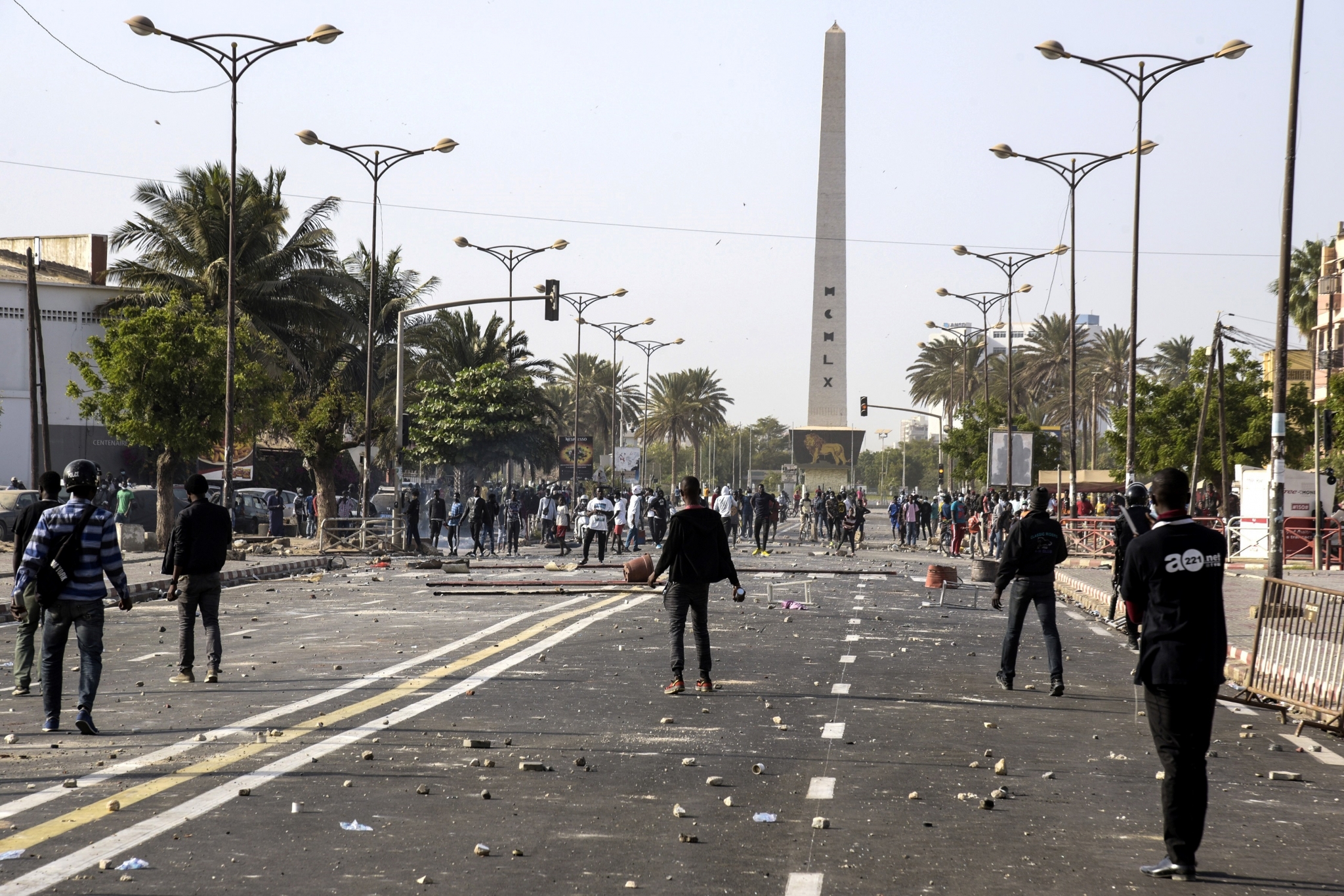Following an announcement by Senegal’s Movement to Defend Democracy (M2D), a group of opposition parties and activists, that a three-day country-wide protest would start today, Samira Daoud, Amnesty International West and Central Africa Director, said:
“Protests in Senegal have already led to the death of at least eight individuals last week, some of them caused by the use of excessive force and firearms by security forces.
“We reiterate our call on the authorities to launch impartial investigations into the circumstances of these deaths, and we urge them to ensure people can safely exercise their right to peaceful assembly, as protected under the country’s constitution and international law.
“The use of force by security forces must be exercised with restraint, only when necessary and in a proportional manner. Firearms must only be used as a last resort when strictly necessary to protect against the imminent threat of death or serious injury. Members of the security forces who use excessive force or unlawful lethal force must be prosecuted according to law.
“Security forces policing demonstrations must wear distinctive uniforms that clearly identify them as such. Individuals in plain clothes armed with sticks, clubs and guns at several sites were observed beating up protesters during last week’s protests in full view of security forces and even using firearms in some parts of the capital. Authorities must also investigate the presence and the role of these individuals.
****************************************
For more information or to arrange an interview, please contact Lucy Scholey, Media Relations, Amnesty International Canada (English branch), 613-853-2142, lscholey@amnesty.ca
Background
The M2D, a coalition of opposition parties and activists groups has planned a protest throughout Senegal from today until Wednesday. This follows protests and violent clashes which erupted in the country after Ousmane Sonko, a leading opposition figure, was arrested on 3 March charged with disturbing public order and participating in an unauthorized demonstration while on his way to court to respond to a summons from a judge in a separate criminal case.
After his arrest, Sonko appeared before a judge without his lawyers on 5 March. He was charged with “calling for an insurrection” and is due to appear before the judge again today. He was released from custody yesterday as well as two of his supporters.
Eight people died in the context of the protests and riots during the last five days. Rioters vandalized supermarket, and private residences of public figures perceived as close to the government. A TV station, TFM, was targeted on 5 March.
In Dakar on 5 March, protesters were prevented from accessing to their planned venue by a heavy police deployment. This led to clashes between security forces and demonstrators in several areas. According to the Senegalese Red Cross, 235 people were injured during the 5 March protests in Dakar.
According to media reports, around 100 people have been arrested since 3 March including six members of activists group ‘’Y’en a Marre’’ on 5 March. Among them the rapper and founding member, Cheikh Oumar Touré “Thiat”.
The Minister of Home Affairs, in a tv statement on 5 March, called the protests “acts of terror and banditry” and denounced the presence of “occult forces” behind the demonstrations. He has not announced an investigation into the deaths linked to the protests, nor the circumstances under which they occurred. He has also stressed that protests are illegal in Senegal due to the state of health emergency, linked to the COVID-19 pandemic.






















